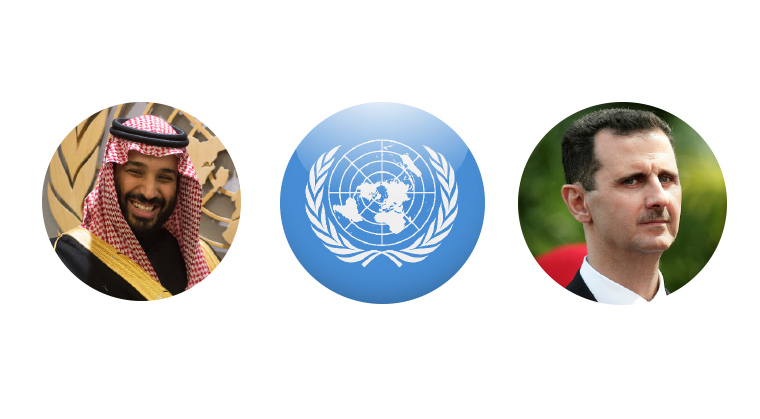Beltway Briefing: What happened in Washington and why it matters


ASaudi Princess as Ambassador
What happened?
Saudi Arabia appointed Reema bint Bandar Al Saud to be its next ambassador to Washington, the first woman to serve in that position. The princess is no stranger to the nation’s capital: she lived there while her father, Bander bin Sultan, served as the Saudi ambassador to the US between 1983 and 2005. She graduated from George Washington University with a degree in museum studies.
Why it matters
After the murder of journalist Jamal Khashoggi, bint Bandar’s appointment may be an attempt to soften Saudi Arabia’s global image. The current ambassador, Khalid bin Salman (pictured above), is the brother of Mohammed bin Salman (MBS), the Saudi prince who has been blamed for orchestrating Khashoggi’s killing. Her appointment takes place at a time when some members of Congress are pressing the White House to sanction Saudi Arabia over Khashoggi’s death.
New Blood at the UN
What happened?
Following the resignation of US ambassador to the UN Nikki Haley, and the decision of State Department spokeswoman Heather Nauert to withdraw from consideration for the job, President Trump announced the nomination of Kelly Knight Craft, the current US ambassador to Canada. Knight and her husband Joe Craft, a billionaire coal industry executive, supported Trump during the presidential elections and are prominent Republican donors.
Knight’s confirmation is expected to proceed smoothly. She has experience as an ambassador and was previously part of the US delegation to the UN in 2007.
Why is it important?
After the withdrawal of Nauert, the administration felt pressured to appoint someone quickly. There are multiple issues on the world stage that require US leadership, among them the crisis in Venezuela, the isolation of Iran, and the volatile wars in Syria and Yemen.
What’s her record on Israel?
It’s not clear. An official in the Israeli UN delegation told Mishpacha, “[She’s a] mystery. We couldn’t find any significant statement from her regarding Israel.” Still, according to the source, Israel is not worried about her appointment. “At the end of the day, she is a part of the Trump administration. She won’t be hostile.”
Troops to Remain in Syria After All
What happened?
Two months after President Trump declared he would pull US troops out of Syria, the White House announced that 200 troops would remain. According to CNN, the soldiers will patrol the strategic Al-Tanf area, near the border with Iraq and Jordan.
Why it matters
The area is a land bridge to Iraq, so the US troops there will counter both ISIS and Iranian influence. European allies also threatened to withdraw their troops if the Americans pulled out completely.
Ronen Dangor, former deputy of the research department in the Prime Minister’s Office, told Mishpacha that the move by the Trump administration sets up a classic “tripwire” situation in which a small number of American troops serve as a deterrent to enemies. “Everyone understands that if anything happens to them, there will be a full-scale war,” he said. “This is mostly a move against Russia and Iran.”
(Originally featured in Mishpacha, Issue 750)
Oops! We could not locate your form.













